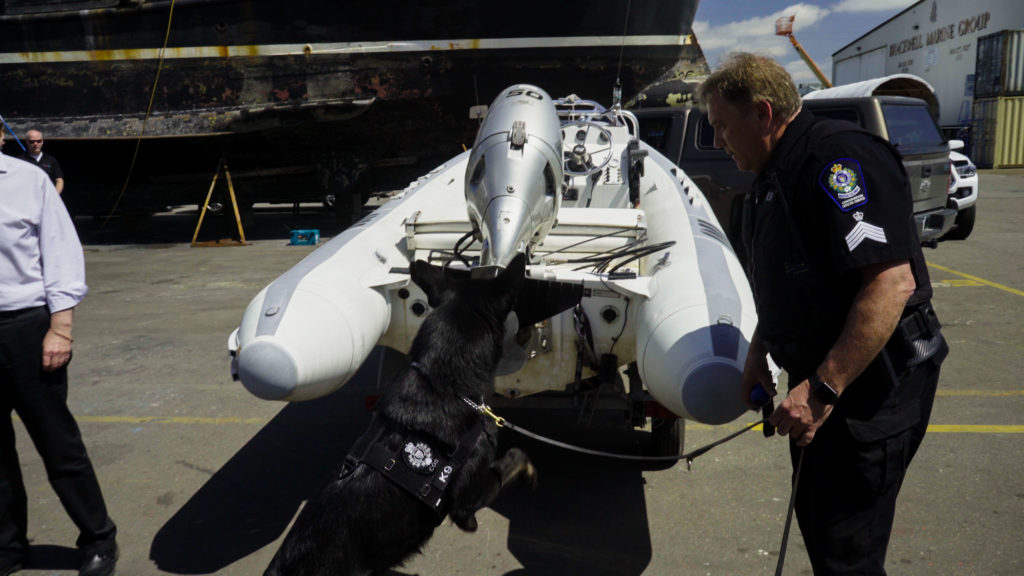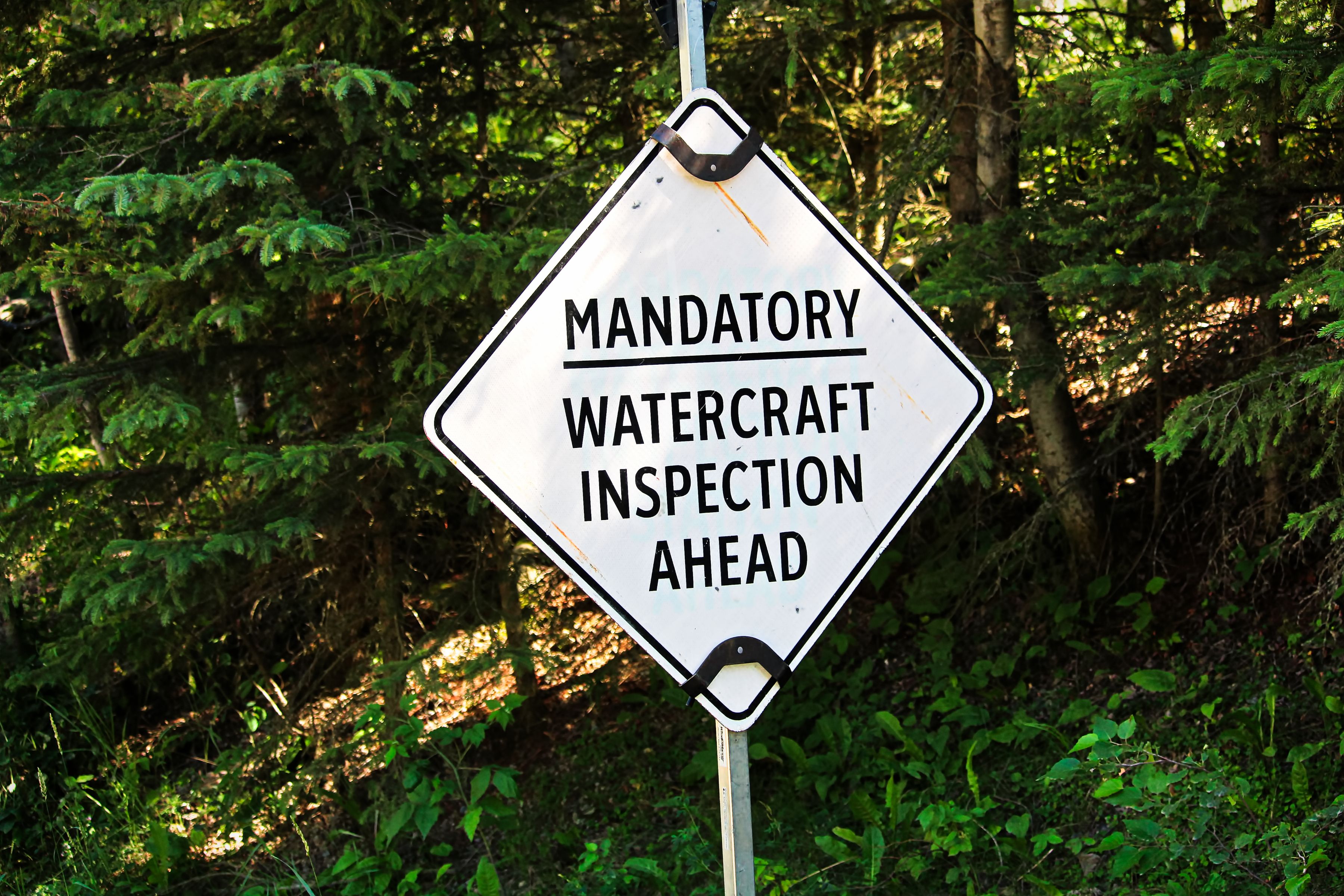British Columbia’s Invasive Mussel Defence Program has launched its fifth season of protecting B.C. waterways from invasive zebra and quagga mussels.
From now until late October 2019, inspectors with the B.C. Conservation Officer Service (COS) will be at 12 inspection stations throughout the province, educating the public about invasive mussels and checking boats travelling into and through B.C. before they enter the water.
“British Columbians depend on our clean waterways for fishing, recreation, and tourism. Zebra and quagga mussels pose a serious threat to these activities, as well as to our fish populations and sensitive ecosystems,” said George Heyman, Minister of Environment and Climate Change Strategy. “With the addition of a second detection dog, we will be able to conduct more inspections to prevent these destructive species from entering our province.”

Piloted in 2015, the COS leads enforcement for the Invasive Mussel Defence Program. It began with six mobile decontamination units and 12 inspectors. The program has grown to include 64 inspectors and two COS detection dogs, Kilo and Major. They will primarily be on the road searching for invasive mussels at inspection stations.
In his first year, Kilo conducted more than 900 inspections and detected invasive mussels on two boats. This will be the first season for Major and his handler Sgt. Cynthia Mann. The dogs are also trained to detect firearms, shell casings, human scent, and bear parts.
Last year, the province ensured annual funding dedicated to the program, leading to more inspections and more opportunities for public awareness. Funding for the 2019 program includes:
BC Hydro – $1.25 million
Columbia Basin Trust – $250,000
Columbia Power – $250,000
Fortis BC – $250,000
Ministry of Environment and Climate Change Strategy – $1.75 million annually, including a $1 million budget.
“Invasive mussels not only pose a significant risk to British Columbia’s rivers and lakes, but also to BC Hydro’s operations,” said Karen Popoff, director of environment, BC Hydro. “They can interfere with our ability to produce power by blocking equipment in our generating facilities, which can lead to costly repairs. We are pleased to continue to partner on the Province’s Invasive Mussel Defence Program.”
In 2018, officers conducted more than 40,000 inspections and found 25 mussel-fouled boats destined for the Lower Mainland, Okanagan, Thompson-Nicola, Vancouver Island and the Kootenays. Partner jurisdictions provided advance notification for 20 of those boats, which came from Ontario, Arizona, Manitoba, Michigan, Utah and Nevada
“The Invasive Species Council of BC (ISCBC) is pleased to see the continued partnerships and funding to help protect B.C.’s waters from aquatic invasive species,” said Dave Bennett, chair, ISCBC. “Working together and making sure that all watercraft users, from big to small, clean, drain and dry their boats and equipment is critical to avoiding the transport by hitchhiking invasive species.”









